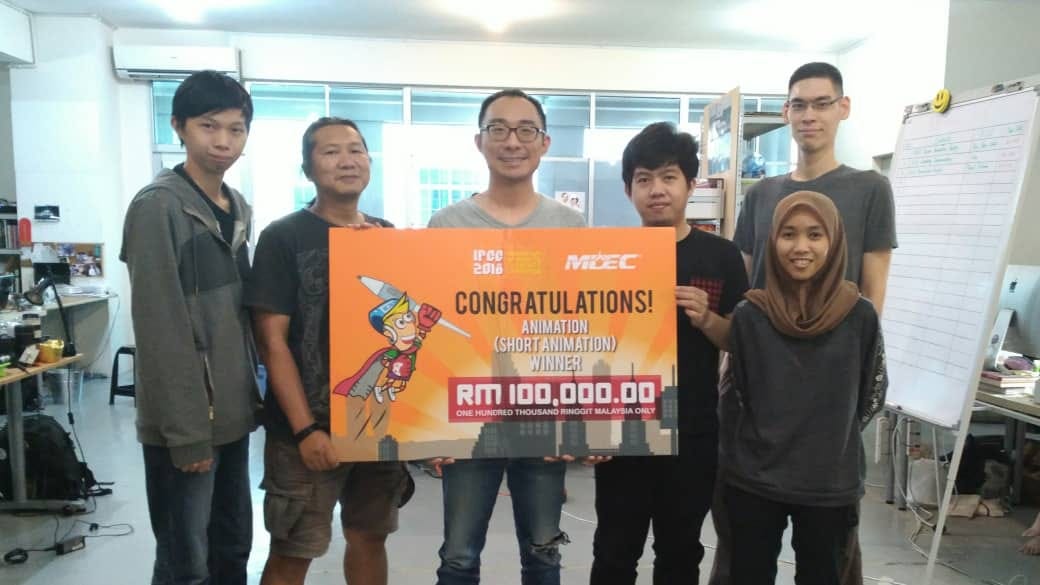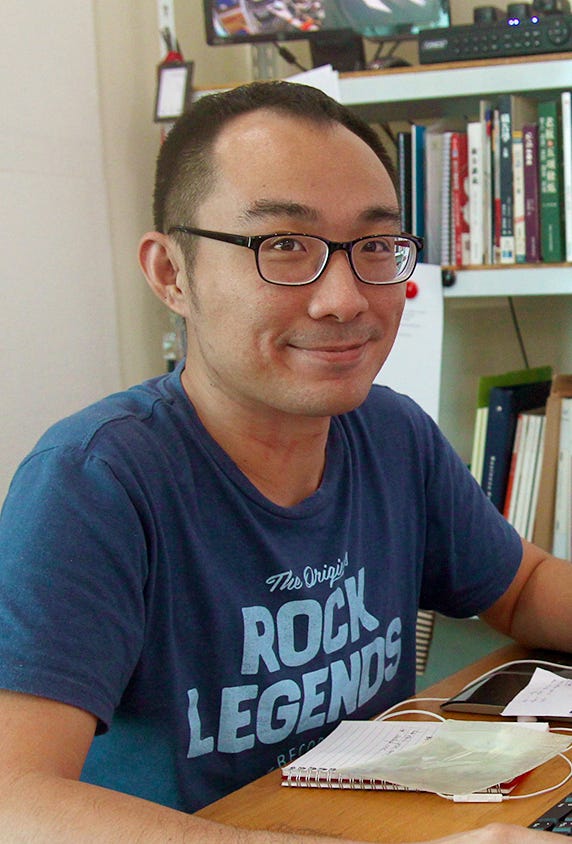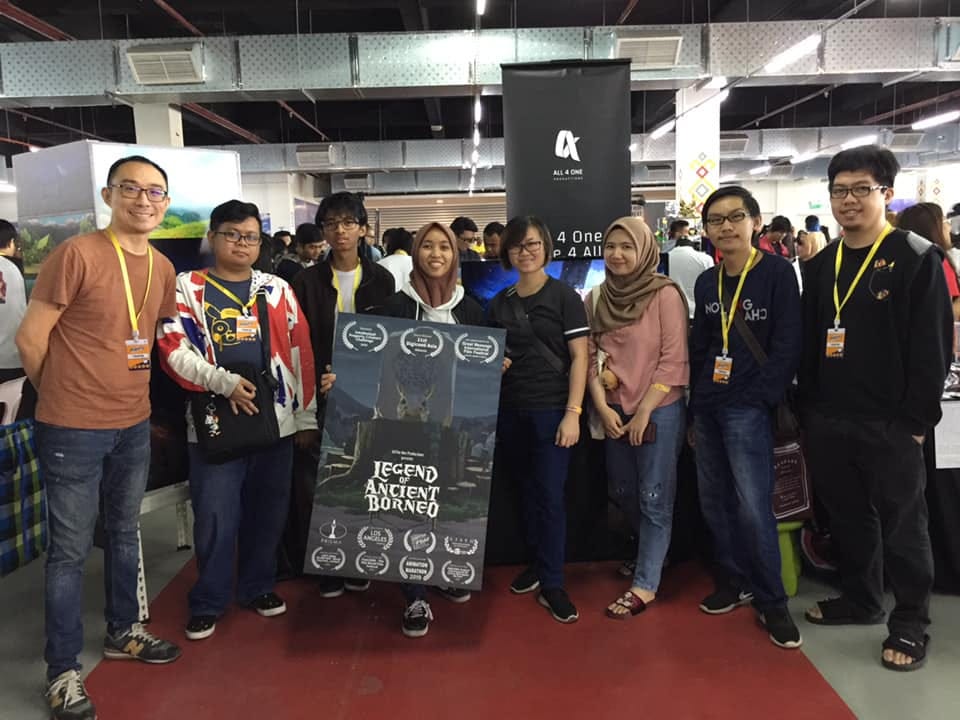#5 Nurturing creative entrepreneurs of tomorrow
Hello! This is the 5th edition on Head’s Up, a weekly newsletter that comes out on Mondays and Fridays on all things SME, Startup, and Social Enterprise in Malaysia (and maybe in the region in time to come).
If you enjoyed this edition, do subscribe and share it to as many people as you want.
Thank you!
Geoffrey Sinn started the social enterprise, Studio Ace Production at the beginning of 2018 after noticing the lack of governmental support towards the creative industry in Sabah. While multimedia courses in universities churned out graduates in the state, they faced the challenge of finding a sustainable job in the industry.
Lucky ones, as Sinn says, found their way to KL for opportunities. The same privilege did not apply to all. He started noticing graduates turning to jobs as cashiers and clerks and this he says regretfully is a waste of resource and talent.
In a conversation with Head’s Up, Sinn says the studio serves as an incubator that provides training along with real-life experience so it can help talent in Sabah’s creative industry be more competent and competitive to take on any challenges.
“We not only train them to be competitive, but we also get them to start their own business and become more entrepreneurial. I also want to make sure they will be ready to pitch their ideas to open tenders at any time,” Sinn says.
Studio Ace Production runs on 100% of their own resources through work with overseas clients and projects. This also serves as a real-life exercise for their members and trainees allowing them to learn and grow along with the studio. “The income we receive gets invested back into the team,” he says.
Bridging the gap
“We have not received any help from the government,” Sinn says, highlighting the lack of help the ecosystem in Sabah receives. While his other company All-For-One Productions Sdn Bhd has won a prize grant of RM100,000 from MDEC organised IPCC back in 2018 to work on an animated short film, Sinn says more needs to be done.
A good starting point would be to have the relevant agencies to look at the ecosystem in both Sabah and Sarawak. “Once they see the industrial gap, they will realise what needs to be done is to elevate the quality and close the gaps,” he stresses.
Sinn also points out that the current creative industry in Sabah lacks the necessary outlets to turn to.
“Federal agencies need to decentralise the focus on Cyberjaya and turn to other states as well. The pandemic has taught us that we no longer need to be just stationed in KL and Cyberjaya,” he says.
“Graduates in Sabah also lack the right exposure and while funding is equally important, getting the right talent is vital as well. We need senior talents to lead the junior talents and this would require knowledge transfer,” he adds.
And to get this right, Sinn says both federal and state agencies would have to work together and communicate more efficiently as well. He highlights the lack of a ministry to look at the growth of the creative industry in the state and while federal agencies have come over to help, the lack of communications between both sides has only prevented any initiatives to be successful.
Without communication he says, both sides lack the necessary knowledge on logistics and the right on-ground talent that is needed to carry out the programmes successful. “Without proper communication, I foresee this trend to continue taking place.”
The social enterprise founder and creative is also urging agencies to come together to enable cross-collaborations between the creative industry and other economic industries, for instance the tourism industry.
Sinn uses Japan’s famous travel mascots as an example and signals the potential these mascots have to promote travel spots within the country.
“The government needs to initiate programmes to leverage on the creative industry and we can work with the necessary parties to use animation to boost these industries,” Sinn tells Head’s Up.
Nurturing creative entrepreneurs of tomorrow
While talent in the state is budding, Sinn says it is not without challenges to nurture them. “Us creatives are mostly focused on perfecting our crafts, while this may reflect our dedication towards the arts, it also highlights another problem. The lack of entrepreneurial skills,” Sinn highlights.
And this is where Studio Ace comes in. Sinn and his team ensure the trainees can develop their craft and at the same time equip themselves with enough knowledge on entrepreneurship and sustainability.
“I look for leadership values and determination. I need to identify the right person and get them on the right platform. Even if they only want to work on their own craft, I will find ways to pair them with someone else who is able to run the operations side of the business,” he says.
Evidently, one of his latest graduates, Orchard Creative Production had recently won RM50,000 at the Digital Content Creators Challenge (DC3) and is currently working on their first video game under MDEC’s support.
Another talent Sinn had groomed was Rosdi Bin Othman, a young talented digital artist. Rosdi worked on a webcomic, Fist Wielder, which went on to garner more than 40,000 subscribers online. He unfortunately passed away in a house fire last year.
The webcomic project is currently being produced by other team members.
Sinn is also currently grooming two other startups currently in ideation stages that is involved in storytelling. “For talents under my wing, as long as they continue to show determination and the will reach to their goals, I will continue to facilitate their journey and give them full support,” Sinn says.
Coming days
While the social enterprise has only seen minor setbacks during the pandemic, Sinn says political uncertainty is only holding back the industry’s growth. He points out that while challenges such as flood, electricity blackouts and inconsistent connectivity are persistent, Sinn and his team have continuously overcome these obstacles and continued to grow.
Studio Ace has seen an influx of projects due to the disruptions brought on by Covid-19, but he calls for more initiatives to develop the talent pool in the state. “With one flight away to vital markets, Sabah has an advantage to take on these markets but with we need the right help to help us get there,” he concludes.
If you would like to feature your startup/sme/social enterprise, reach out to Head’s Up via headsupnewsletter@gmail.com







